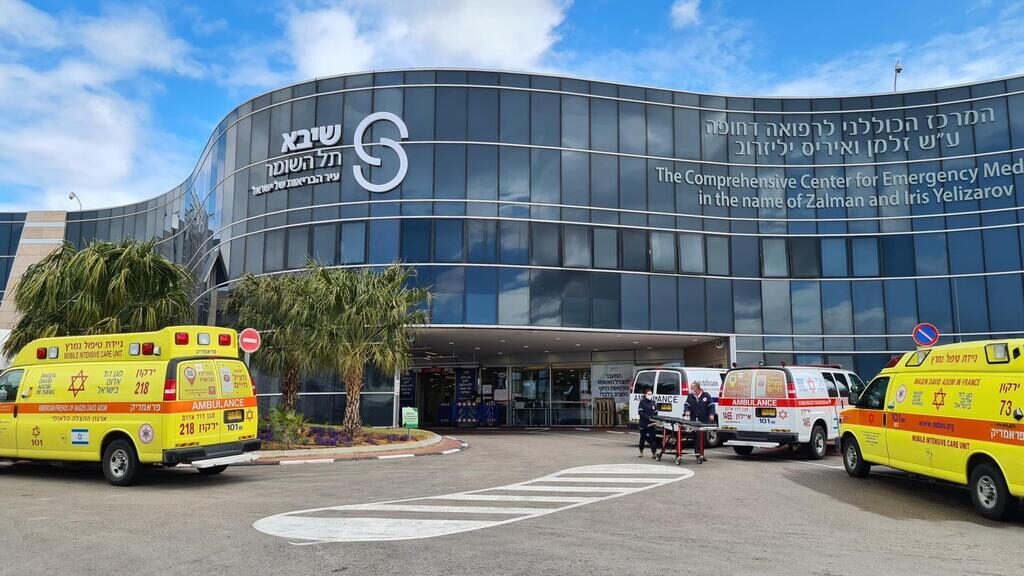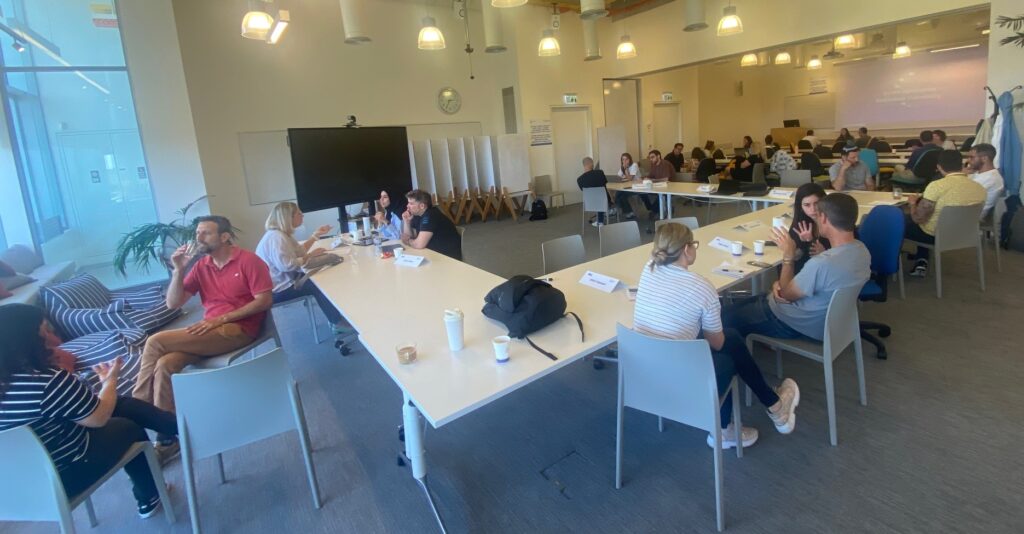With hands-on experience of patients throughout their care, nurses have a deep understanding of the needs and the complexities involved, something which Israel’s largest hospital, the internationally celebrated Sheba Medical Center, is now tapping into.
Sheba’s SPARC Entrepreneurship Program, a three-month course designed to support clinicians as they commercialize their innovative solutions, has just launched a new initiative dedicated to helping nurses develop the ideas that were inspired by their own professional experiences.
Like the original SPARC program, the new incarnation for nurses is being run by Sheba’s ARC Center for Digital Innovation in Israel, which was created in 2019 with the stated aim of advancing innovation in healthcare around the world.

SPARC brings in medical professionals from around the world, and its current third cohort includes participants from Australia, Brazil, Germany, Japan, Nigeria, South Africa and the US. It also has a permanent spot for a member of Israel’s Arab community, whose members play a significant role in the country’s healthcare infrastructure.
The new program was the initiative of SPARC director Dr. Zohar Kaplan, who was inspired by his own first-hand knowledge of the dedication and skill of nurses, and is based on the same principles as the initial incarnation.
“My wife is an ER nurse,” Kaplan tells NoCamels.
“So I always knew that nurses are very keen on solving problems that are right there on the manufacturing floor: seeing the problems, seeing the challenges, tackling problems every minute not every day, and trying to solve that with creativity and thinking out of the box. They are very practical.”
The first cohort of the SPARC for program for nurses comprises 25 members of the nursing staff at Sheba, who were selected from more than 100 applicants, each with their own innovative solution.
Kaplan says that the number of candidates even exceeded the applicants for SPARC, which includes a trip to the US as part of the program.
“We had 25 applicants within 24 hours, but in one week, we had more than 100 applicants,” he says. “More than a half of them [had] great ideas; a lot of them with more than one idea.”
The SPARC team held interviews with the applicants about their ideas, before whittling the number down to one quarter of those who wanted to join. The “excellent” nurses on the program, Kaplan says, come from a wide range of fields within the profession, and with a wide range of experience and seniority.
“We have beginner nurses and we have more high-profile nurses, including the head of the oncology sector, for example,” he says. “We have a diverse group from different departments.”

Kaplan says that the nurses on the program have “a diversity of ideas,” and reiterates that the solutions proposed by the nurses are very much born of their professional experience.
They include an AI platform to predict surges in demand for specific departments in a hospital; virtual reality assistance for dealing with chronic pain; drug safety measures; and even a digital way to help nurses’ efficiency in the delivery room as women give birth.
“Nurses tend to be closer to the problems and more keen on solving those challenges that they see every day,” he explains.
Sign up for our free weekly newsletter
Subscribe“It’s unique for nurses, especially that practical sense of: I have a problem – let’s try to fix it, let’s think out of the box, because we have a patient here and we have patients waiting, and we have to solve this now,” he says.
Kaplan gives the example of Michal Zinger, a nurse responsible for the Oncology Clinic at Sheba Children’s Hospital, a graduate of the first SPARC program who jointly created a platform to predict deterioration in cancer patients in advance.
AMIT (Acute Managerial Intelligence Tool), which Zinger developed along with the Children’s Hospital Deputy Director Dr. Moshe Ashkenazi, was implemented at the Sheba oncology clinic some six months ago.
While the program is shorter than the original global SPARC program, with seven sessions over three months instead of 12, the nurses also do meet with experienced entrepreneurs and businesspeople who offer them advice, including how to ensure their idea is sufficiently unique, transform it into a viable business proposal and pitch that proposal to potential investors.

The course culminates in a pitch session, where the participants behind the best 10 or so solutions are given the opportunity to present them to a panel of Sheba officials, entrepreneurs and external investors.
“We hope some will catch the eye of someone in the crowd beyond Sheba and bring them to life,” Kaplan says.
Even so, he stresses that the aim of the program is to help each participant develop their idea into a commercial enterprise, and does not have a winner singled out at the end.
“Each one of the ideas is of course unique, and we’re going to give it the proper time, and, if needed, the proper resources,” Kaplan explains.
“This program will take them and make them understand what entrepreneurship is, both helping them promote their own ideas and showcasing them in an excellent way.”
Having successfully tapped into solutions of the nurses, SPARC is now looking to expand to other hospital personnel whose experiences have inspired innovation, beginning with members of the logistics team and from there other clinical departments such as psychiatry.
Kaplan cites a tour he joined of the logistics departments at Sheba, where he says the staff “were all infused with innovations and ideas, like the nurses.”
One of the solutions discussed by members of the logistics team working in the hospital laundry was a way to tackle the issue of used syringes placed by busy doctors in the pockets of their scrubs and then forgotten.
“We had a lot of ideas about how to manage those needles and that’s amazing,” Kaplan says.
“That’s entrepreneurship. That’s what we want to see.”
Related posts

Editors’ & Readers’ Choice: 10 Favorite NoCamels Articles

Forward Facing: What Does The Future Hold For Israeli High-Tech?

Impact Innovation: Israeli Startups That Could Shape Our Future




Facebook comments